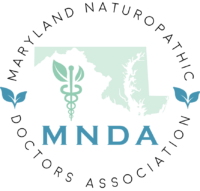MODERN SCIENCE AND TIMELESS TECHNIQUES
Naturopathic medicine combines the latest in modern medicine and the timeless art of healing. Naturopathic doctors understand conventional treatments, and can use natural therapies to safely complement or augment conventional therapies.
Naturopathic doctors are constantly abreast of the latest in research, but also acknowledge the innate importance of the doctor-patient relationship. While NDs are very knowledgable and educated, they are also providers who listen.
Naturopathic medicine is appropriate for everyone from infants to seniors, and for a broad range of health conditions.

HOW ARE NATUROPATHIC DOCTORS TRAINED?
Naturopathic doctors are trained in modern diagnostic and treatment techniques, as well as nutrition, lifestyle, herbal medicines, and natural therapies.
In their first two years, NDs are trained in the basic biomedical sciences, much as MDs are. These include: anatomy, physiology, biochemistry, pathology, laboratory diagnosis and physical diagnosis.
In the second two years, NDs are trained in clinical science, again, much as MDs are. These include: rheumatology, cardiology, oncology, gastroenterology, pharmacology, and many other disciplines.
In addition to the biomedical and clinical sciences, though, NDs are trained in natural therapies, which truly sets them apart from other providers. These therapies include: clinical nutrition, herbal medicine, homeopathy, naturopathic musculoskeletal techniques, counseling, hydrotherapy, and minor office procedures.
Throughout this process, naturopathic medical students undergo supervised clinical training with licensed naturopathic doctors, and they are required to pass two rounds of board exams, one testing the basic biomedical science, and the second testing the clinical sciences.

WHAT DO NATUROPATHIC DOCTORS OFFER?
Clinical Nutrition: Nutrition forms the core of naturopathic medicine. We all learn as children that we are what we eat, but naturopathic doctors put that into clinical practice, creating individualized nutritional plans for our patients.
Herbal Medicine: NDs are trained in the use of herbs and botanicals to treat disease. Naturopathic clinical practice is based on traditional uses for these herbs, and those uses that have been verified by modern research. NDs are also trained in drug-herb interactions, and can counsel patients on safe use of these plants.
Lifestyle Counseling: If you are what you eat, you are what you do, too. Naturopathic doctors are trained to address the lifestyle, emotional and spiritual components of illness and assist their patients in implementing changes.
Homeopathy: Homeopathy is not well known in the United States, but is widely used in the rest of the world. Homeopathic medicines address the whole of a person’s health, including physical, mental, and emotional.
Naturopathic Physical Medicine: Physical medicine offers treatment for musculoskeletal conditions. Treatments can include soft tissue work, manipulation, physiotherapy, hydrotherapy, ultrasound, and exercise therapy. (Naturopathic modalities are distinct from chiropractic and physical therapy)
Pharmaceuticals: Naturopathic doctors are trained in the use of all means to treat illness, including pharmaceuticals. NDs will always use less disruptive therapies when possible, but always view the patient’s health above all else, and will use pharmaceuticals when most appropriate. (Naturopathic doctors in Maryland do not currently have prescriptive rights.)
